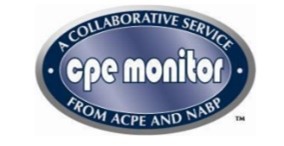Announcer:
Welcome to CME on ReachMD. This episode is part of our MinuteCE curriculum.
Prior to beginning the activity, please be sure to review the faculty and commercial support disclosure statements as well as the learning objectives.
Dr. Patel:
Hello. I'm Sapna Patel, a Medical Oncologist and the William Robinson Endowed Chair for Cancer Research at the University of Colorado. Joining me is Dr. Mario Lacouture. Dr. Lacouture, would you like to give an introduction?
Dr. Lacouture:
Yes. Thank you, Dr. Patel, it's great to be here. My name is Mario Lacouture, and I'm the Chief of Dermatology at NYU Langone in Long Island.
Dr. Patel:
Great. So today we're going to be talking about optimizing outcomes through multidisciplinary care for patients with melanoma, and we're really focusing on this early stage of melanoma. So you know, Dr. Lacouture, historically, medical oncology would get referred patients for maybe a metastatic therapy discussion, maybe even some adjuvant therapy in the post interferon and now adjuvant PD-1 era, but there was probably always a population of patients that dermatologists and surgical oncologists and general surgeons held on to, these very early stage melanoma in situ, T1/T2 tumors. Is any of that changing in your practice? Or are there earlier referrals coming to melanoma medical oncology?
Dr. Lacouture:
Yes, Dr. Patel. So we work very closely with medical oncologists because we have a very close relationship as part of our symptom management program and caring for patients when they are on therapy for advanced disease. So we also try to include medical oncologists whenever patients have early disease, as you indicate, times are changing and treatments are changing so quickly that earlier during the course of disease, therapies are being introduced, both approved therapies or in clinical trials. So I always refer patients with melanoma, irrespective of stage of disease, for a consultation with our medical oncologists. And it's been wonderful, not only for me as reassurance, but also for the patients, they are very reassured after they see their medical oncologist.
Dr. Patel:
You know, that's great to hear. I think this multidisciplinary approach across the melanoma spectrum, disease spectrum, makes good sense. In the early setting, we now have adjuvant therapy for resected stage IIB and IIC disease in the form of single agent, PD-1, and that's on the basis of two landmark clinical trials. But we also have, like you said, some intriguing evidence that referrals before dermatology or surgical oncology has removed the melanoma. So in this perioperative, maybe preoperative setting, there are some interesting clinical trials being referred.
Dr. Lacouture:
So Dr. Patel, for me as a dermatologist, and my colleagues in radiation oncology or surgical oncology, it would be very interesting to know whether there would be advantages in referring patients even before they undergo surgery or radiation. Are there any studies or data suggesting that perhaps we should refer patients before surgical intervention?
Dr. Patel:
Yeah, you know, medical oncology loves this question. We certainly have one randomized phase 2 trial, the SWOG S1801 trial that looked at neoadjuvant followed by adjuvant pembrolizumab for receptable stage III/IV melanoma, and compare that to solely adjuvant pembrolizumab, so surgery or resection first. And it seems that the outcomes in terms of event-free survival and recurrence-free survival are superior in that perioperative setting. But we do need some definitive data. We've got the phase 3 NADINA trial that should report out soon, and hopefully we'll keep this momentum going where, when dermatology or surgical oncology refers early, we actually have an interesting therapeutic intervention or trial to put these patients on.
Dr. Lacouture:
Very interesting. To me, I've always been fascinated by the idea that with immunotherapies, especially now we are introducing therapies earlier into earlier stages of disease, and some of these patients receiving therapies are relatively young and healthy, and some of these adverse events can persist for a long time. Do you have any thoughts on the follow-up for these patients from the medical oncology perspective?
Dr. Patel:
Yeah. So that's a key point. You know, our therapies do not come without side effects, right? And these can be dermatologic side effects that often need referral back to our derm colleagues. They can be gastrointestinal, hepatic. They can be ocular toxicity. So we often still need a multidisciplinary approach to these patients when they're on therapy, whether it's in the perioperative or post operative setting.
But you know, one of the most important things with melanoma, of course, is skin surveillance. So how do you feel we should be, as a medical oncologist, utilizing our multidisciplinary teams, and dermatology specifically, when it comes to surveillance of these patients? We do the scans, but may not be as skilled at doing those skin exams. How important is it to refer these patients back for that skin exam?
Dr. Lacouture:
I completely agree, Dr. Patel. And, you know, I've always been a big believer that of all the amazing things that medical oncologists like yourself do, which is not only treating the cancer, but you also have to treat so many other things related to patient care, right? I mean, we have the financial toxicity, now the time toxicity, you have to treat toxicities related to different organ systems. So our perspective from dermatologists standpoint, is if we can minimize the data that burden of additional care, and save 5 or 10 minutes from that skin examination and do a skin examination that perhaps is more comprehensive, because we have the time and the expertise we will do so. So I completely encourage a medical oncologist to refer back to the dermatologist for their periodic surveillance, which will vary depending on the pre-existing risk, the number of nevi, the number of sunburns that they have experienced, and whether they have a family history of melanoma or germline mutation.
Dr. Patel:
Yeah, that's a great point. Thanks for joining me, Dr. Lacouture. We hope the audience found this education series helpful.
Dr. Lacouture:
Thank you, Dr. Patel.
Announcer:
You have been listening to CME on ReachMD. This activity is jointly provided by Global Learning Collaborative (GLC) and TotalCME, LLC. and is part of our MinuteCE curriculum.
To receive your free CME credit, or to download this activity, go to ReachMD.com/CME. Thank you for listening.


 In support of improving patient care, this activity has been planned and implemented by Global Learning Collaborative (GLC) and Total CME, LLC. GLC is jointly accredited by the American Council for Continuing Medical Education (ACCME), the Accreditation Council for Pharmacy Education (ACPE) and the American Nurses Credentialing Center (ANCC) to provide continuing education for the healthcare team.
In support of improving patient care, this activity has been planned and implemented by Global Learning Collaborative (GLC) and Total CME, LLC. GLC is jointly accredited by the American Council for Continuing Medical Education (ACCME), the Accreditation Council for Pharmacy Education (ACPE) and the American Nurses Credentialing Center (ANCC) to provide continuing education for the healthcare team. 

